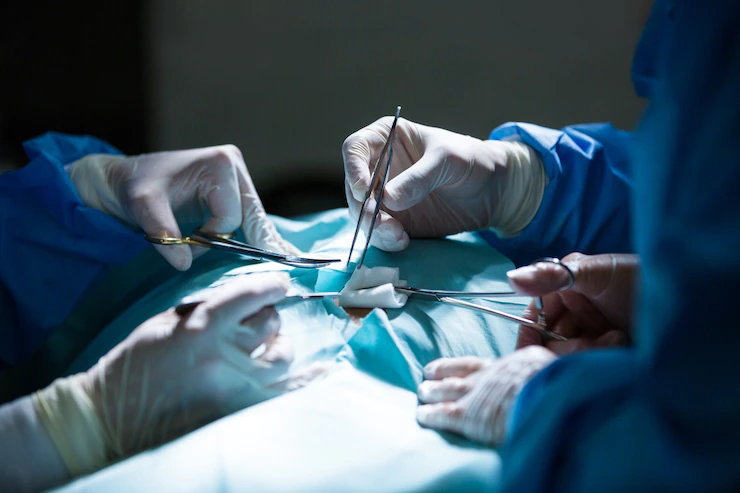Guide to Enjoying a Healthy Lifestyle After Bariatric Surgery
Bariatric surgery is a life-changing procedure that helps people lose weight when other methods have been proven unsuccessful. This type of weight loss surgery offers a variety of benefits, such as reduced appetite and limited calorie intake.
However, to get the maximum possible benefits out of bariatric surgery and maintain good health, you must make certain lifestyle changes following the procedure. These changes involve everything from eating habits to focusing on physical activity and behavior. Click on the www.tonicweightlosssurgery.co.uk/ and see how the weight loss surgery is going on for others.
Below we share a useful guide to enjoying a healthy lifestyle after undergoing bariatric surgery.
Contents
4 Lifestyle Hacks One Should Hone In On After Bariatric Surgery
1. Eating Habits
A major change for most people who have undergone bariatric surgery is food. As the anatomy of the gastrointestinal tract changes after bariatric surgery, many patients need to change their way of eating.
To first lose weight and then maintain the weight, you need new habits, both in terms of what and how you eat. Most people need to chew their food carefully to avoid the discomfort associated with the meal, at least at the beginning.
You also need to take nutritional supplements and bariatric vitamins in the foreseeable future. All these supplements are essential to fully restore the body’s vitamin production and get your nutrition back to normal.

The food is taken up in a new way following the surgery. It reaches the intestine quicker, affecting how food is broken down. To feel good, you need to eat a little but often, eat slowly to avoid dumping and you need food that is nutritionally balanced. You must be careful with high-fat foods as they’re harder to break down. A small percentage of patients also become lactose tolerant.
It’s important to find new habits and eating patterns. If you sit in a restaurant, for example, you need to be comfortable eating slower than others. But, in the end, it all boils down to making sure you eat enough and get the right kind of food.
2. Activity and Exercise at Home
It’s important to be active and try to live as much as normal when you get home. First, you should do everything in your power to make your life comfortable and easy around the house.
For instance, you can consider purchasing hospital beds for the home setting, which can be critical pieces of home health equipment as they’re specifically tilted, reinforced, and upholstered with high gauge metals to provide the highest level of safety.
You can start walking the day after the surgery and return to normal activities after a few days. If you force yourself too much, your body will end up saying no, so it’s important to listen to signals such as pain, discomfort, and dizziness and then start again carefully.

Based on your individual circumstances, the goal for your activity level may be to gradually achieve the general recommendations for physical activity that are at least 150 minutes of moderate-intensity or 75 minutes of high-intensity activity per week. An example of how to achieve this could be 30 minutes of walking, 5 times a week.
At moderate intensity, you perform an activity where you get warm and strained, but can still have a conversation. At high intensity, it should be difficult to have a conversation.
For those who have sedentary work or leisure, short leg stretchers are recommended to add to the workout. Muscle-strengthening physical activity such as strength training should be performed at least 2 times per week and can be started about 4 weeks after the surgery. For people who suffer from joint problems, cycling, or pool training (when the post-surgery wounds have healed) can be good alternatives.
3. Basic Dietary Advice
The procedure frequently results in an immediate and prolonged feeling of fullness after eating. This does apply to most people but not everyone. Recommendations on what the diet should look like after your surgery may differ between different clinics and hospitals, and there are no national guidelines for this yet.

Most people, however, recommend that dietary treatment be divided into three periods. For the first one to two weeks after the surgery, you should follow a liquid diet. Afterward, you can eat pureed food for two weeks and then switch to normal food in small portions, which you can then eat for the rest of your life.
Related: 6 Diet Trends For 2022 And How To Incorporate Them Into Your Lifestyle
4. Behavioral Changes
To maintain your weight loss, you also need to consider making certain behavioral changes that affect your daily life.

You should remember to drink more water each day, cook nutritious meals at home instead of going out to restaurants, always take the stairs instead of using the elevator or escalator, and practice walking from one place to another as much as possible instead of driving your car.
Final Thoughts
Bariatric surgery is the most effective treatment for obesity, with a significant improvement in the health and quality of life of patients. To achieve the best results, you should be aware of these changes and include them as much as you possibly can. To make the process easier, discuss your intended lifestyle changes with your bariatric surgeon, friends, and family before the procedure.
Additional Resources:
- 4 Self Care Tips for Cancer Survivors
- Is The Vegan Diet Good To Lose Weight?
- Expedite Weight Loss: Here are the tricks Laxatives can offer
- Weight Loss-The Perfect Way to Boost Your Testosterone Levels



